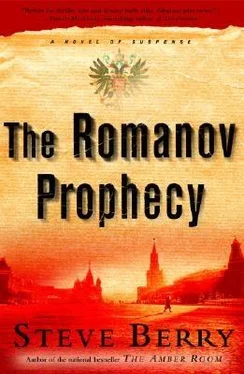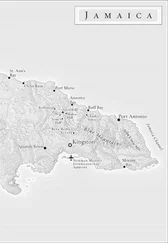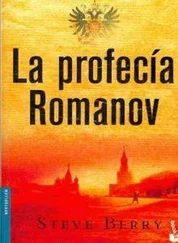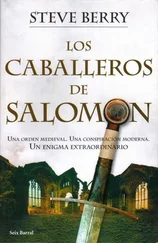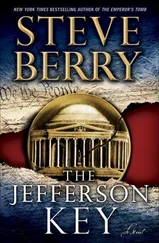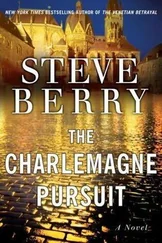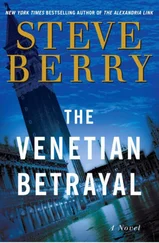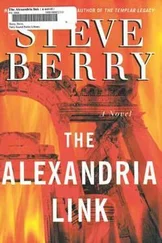Steve Berry - The Romanov Prophecy
Здесь есть возможность читать онлайн «Steve Berry - The Romanov Prophecy» весь текст электронной книги совершенно бесплатно (целиком полную версию без сокращений). В некоторых случаях можно слушать аудио, скачать через торрент в формате fb2 и присутствует краткое содержание. Жанр: Триллер, на английском языке. Описание произведения, (предисловие) а так же отзывы посетителей доступны на портале библиотеки ЛибКат.
- Название:The Romanov Prophecy
- Автор:
- Жанр:
- Год:неизвестен
- ISBN:нет данных
- Рейтинг книги:4 / 5. Голосов: 1
-
Избранное:Добавить в избранное
- Отзывы:
-
Ваша оценка:
- 80
- 1
- 2
- 3
- 4
- 5
The Romanov Prophecy: краткое содержание, описание и аннотация
Предлагаем к чтению аннотацию, описание, краткое содержание или предисловие (зависит от того, что написал сам автор книги «The Romanov Prophecy»). Если вы не нашли необходимую информацию о книге — напишите в комментариях, мы постараемся отыскать её.
The Romanov Prophecy — читать онлайн бесплатно полную книгу (весь текст) целиком
Ниже представлен текст книги, разбитый по страницам. Система сохранения места последней прочитанной страницы, позволяет с удобством читать онлайн бесплатно книгу «The Romanov Prophecy», без необходимости каждый раз заново искать на чём Вы остановились. Поставьте закладку, и сможете в любой момент перейти на страницу, на которой закончили чтение.
Интервал:
Закладка:
Your Wify
Lord knew that the writer was Alexandra, the last tsarina of Russia. She had kept a diary for decades. So had her husband, Nicholas, and both journals subsequently provided an unprecedented look into the royal court. Nearly seven hundred of their letters were found in Yekaterinburg after the execution. He'd read other diary excerpts and most of the letters. Several recent books had published them verbatim. He knew the reference to "our Friend" was their way of describing Rasputin, since both Alexandra and Nicholas thought their letters were being scrutinized by others. Unfortunately, their unfettered confidence in Rasputin was not shared by anyone else.
"So deep in thought," a voice said in Russian.
He glanced up.
An older man stood on the opposite side of the table. He was fair-skinned with pale blue eyes, a thin chest, and freckled wrists. His head was half bald and graying fuzz dusted the sallow skin on his neck from ear to ear. He wore steel-rimmed glasses and a bow tie. Lord immediately recalled that he'd seen the man poring through the records, one of several individuals who seemed to be working as hard as he was.
"Actually, I was back in 1916 for an instant. Reading this stuff is like time travel," Lord said in Russian.
The older man smiled. Lord estimated his age to be nearing, if not more than, sixty.
"I quite agree. It is one of the reasons I like coming here. A reminder of something that once was."
He instantly warmed to the congenial manner and stood from the table. "I'm Miles Lord."
"I know who you are."
A wave of suspicion swept over him and his gaze unconsciously darted around the room.
His visitor seemed to sense the fear. "I assure you, Mr. Lord, I am no threat. Just a tired historian looking for a little conversation with someone of similar interests."
He relaxed. "How do you know me?"
The man smiled. "You are not a favorite of the women who staff this depository. They resent being ordered about by an American-"
"And a black?"
The man smiled. "Unfortunately, this country is not progressively minded on the issue of race. We are a fair-skinned nation. But your commission credentials cannot be ignored."
"And who are you?"
"Semyon Pashenko, professor of history, Moscow State University." The older man offered his hand and Lord accepted. "Where is the other gentleman who accompanied you in days past? A lawyer, I believe. We talked for a few moments among the stacks."
He debated whether to lie, but decided the truth would be better. "He was killed this morning on Nikolskaya Prospekt. In a shooting."
Shock filled the older man's face. "I saw something on the television about that earlier. So terrible." He shook his head. "This country will be the ruin of itself if something is not done soon."
Lord sat and offered a seat.
"Were you involved?" Pashenko asked, settling into a chair.
"I was there." He decided to keep the rest of what happened to himself.
Pashenko shook his head. "That sort of display says nothing for who or what we are. Westerners, like yourself, must think us barbarians."
"Not at all. Every nation goes through periods like this. We had our own during the western expansion and in the nineteen twenties and thirties."
"But I believe our situation is more than merely growing pains."
"The past few years have been difficult for Russia. It was hard enough when there was a government. Yeltsin and Putin tried to keep order. But now, with little semblance of authority, it's nothing short of anarchy."
Pashenko nodded. "Unfortunately, this is nothing new for our nation."
"Are you an academician?"
"A historian. I have devoted my life to the study of our beloved Mother Rus."
He grinned at the ancient term. "I would imagine there hasn't been much use for your specialty in some time."
"Regretfully. The communists had their own version of history."
He recalled something he'd read once. Russia is a country with an unpredictable past. "Did you teach, then?"
"For thirty years. I saw them all. Stalin, Khrushchev, Brezhnev. Each one inflicted his own peculiar damage. It is sinful what happened. But even now, we find it hard to let go. People still line up each day to walk past Lenin's body." Pashenko lowered his voice. "A butcher, revered as a saint. Did you notice the flowers around his statue out front." He shook his head. "Disgusting."
Lord decided to be careful with his words. Though this was the postcommunist era, soon to be new tsarist era, he was still an American working under credentials granted by a shaky Russian government. "Something tells me that if tanks rolled through Red Square tomorrow, everyone who works in this archive would be there to cheer them on."
"They are no better than street beggars," Pashenko said. "They enjoyed privilege, kept the leaders' secrets, and in return received a choice apartment, some extra bread, a few more days off in summer. You must work and earn what you get, is that not what America stands for?"
Lord didn't answer. Instead, he asked, "What do you think of the Tsarist Commission?"
"I voted yes. How could a tsar do any worse?"
He'd found that attitude quite prevalent.
"It is unusual to find an American able to speak our language so well."
He shrugged. "You have a fascinating country."
"Have you always had an interest?"
"Since childhood. I started reading about Peter the Great and Ivan the Terrible."
"And now you are a part of our Tsarist Commission. About to make history." Pashenko motioned to the sheets on the table. "Those are quite old. Do they come from the Protective Papers?"
"I found both a couple of weeks ago."
"I recognize the script. Alexandra herself penned that one. She wrote all her letters and diaries in English. The Russians hated her because she was born a German princess. I always thought that an unfair criticism. Alexandra was a most misunderstood woman."
He offered the sheet, deciding that this Russian's brain might be worth picking. Pashenko read the letter, then said when he finished, "She was colorful in her prose, but this is mild. She and Nicholas wrote many romantic letters."
"It's sad handling them. I feel like an intruder. I was reading earlier about the execution. Yurovsky must have been one devil of a man."
"Yurovsky's son said that his father always regretted his involvement. But who knows? For twenty years after he gave lectures to Bolshevik groups about the murders, proud of what he did."
He handed Pashenko the note penned by Lenin. "Take a look at this."
The Russian read the page slowly, then said, "Definitely Lenin. I am familiar with his writing style, too. Curious."
"My thought exactly."
Pashenko's eyes lit up. "Surely you do not believe those stories that two of the royal family survived the execution at Yekaterinburg?"
He shrugged. "To this day the bodies of Alexie and Anastasia have never been found. Now this."
Pashenko grinned. "Americans really are conspiratorialists. A plot into everything."
"It's my job at the moment."
"You must support Stefan Baklanov's claim, correct?"
He was a little surprised and wondered about his transparency.
Pashenko motioned to the surroundings. "The women, again, Mr. Lord. They know all. Your document inquiries are recorded and, believe me, they pay attention. Have you met our so-called Heir Apparent?"
He shook his head. "But the man I work for has."
"Baklanov is no better fit to rule than Mikhail Romanov was four hundred years ago. Too weak. Unlike poor Mikhail, who had his father to make decisions for him, Baklanov will be on his own, and many would revel in his failure."
This Russian academician had a point. From all he'd read about Baklanov, the man seemed more concerned with a return of tsarist prestige than with actually governing the nation.
Читать дальшеИнтервал:
Закладка:
Похожие книги на «The Romanov Prophecy»
Представляем Вашему вниманию похожие книги на «The Romanov Prophecy» списком для выбора. Мы отобрали схожую по названию и смыслу литературу в надежде предоставить читателям больше вариантов отыскать новые, интересные, ещё непрочитанные произведения.
Обсуждение, отзывы о книге «The Romanov Prophecy» и просто собственные мнения читателей. Оставьте ваши комментарии, напишите, что Вы думаете о произведении, его смысле или главных героях. Укажите что конкретно понравилось, а что нет, и почему Вы так считаете.
